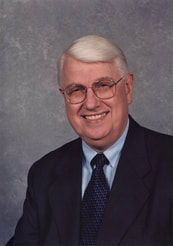 Nearly everyone should consider updating his or her estate plan. This is smart advice even if you’re not currently exposed to the federal estate tax. Year end can be a convenient time to reflect on major life changes and plan for the future, including devising strategies to minimize taxes. Reasons to Review Your Plans For 2019, the unified federal estate and gift tax exemption is $11.4 million (effectively $22.8 million for married couples). Thanks to these generous exemptions you may not currently be exposed to the federal estate tax. Nearly everyone should consider updating his or her estate plan. This is smart advice even if you’re not currently exposed to the federal estate tax. Year end can be a convenient time to reflect on major life changes and plan for the future, including devising strategies to minimize taxes. Reasons to Review Your Plans For 2019, the unified federal estate and gift tax exemption is $11.4 million (effectively $22.8 million for married couples). Thanks to these generous exemptions you may not currently be exposed to the federal estate tax. However, there’s a distinct possibility that today’s favorable estate and gift tax exemptions won’t last. They’re set to expire in 2026 under current law, unless Congress extends them. However, some lawmakers have expressed interest in ending them sooner, along with other unfavorable tax changes. So, depending on what happens in Washington, you could be exposed to the federal estate tax in the near future, after all. Plus, lower exemption amounts may apply at the state level if you live in a state with a death tax. You also might need to update your estate plan for nonfinancial reasons. Examples include changes in marital status, the birth or adoption of a child, the death of a loved one, the launch of a business venture, the acquisition of new assets (or debts) via a purchase or inheritance, and even a lottery windfall. Here are some steps to consider. Establish Your Will First and foremost, it’s essential to have your last will and testament drafted. If you die intestate (without a will), the laws of your state will determine the fate of your minor children and who will inherit your assets. A written will makes your wishes known. There are three main purposes for putting together a will:
Create a Living Trust For people with significant assets, a fundamental estate planning goal is to avoid probate, if possible. Probate is the court-supervised process of:
Note: You should also have a so-called “pour-over will” drawn up. This document stipulates that assets that aren’t officially owned by the trust still belong under its umbrella. Items such as vehicles, artwork, jewelry and collectibles may be covered. The trust document should 1) name a trustee to manage the trust’s assets after you die, and 2) specify which beneficiaries will get which assets from the trust and when. Because a living trust is revocable, you can change its terms at any time, or even unwind it completely, as long as you’re alive and legally competent. For federal income tax purposes, the existence of the living trust is completely ignored while you’re alive. As far as the IRS is concerned, you still personally own the assets that are legally held by the trust. So, you continue to report on your personal tax returns any income generated by trust assets and any deductions related to those assets (such as mortgage interest on your home). For state-law purposes, the living trust isn’t ignored. That’s why, if set up properly, a living trust avoids probate. When you die, the assets in the living trust are included in your estate for federal estate tax purposes. However, thanks to the unlimited marital deduction privilege, assets that go to your surviving spouse aren’t included if he or she is a U.S. citizen. Important: If you set up a living trust, you must transfer to the trust legal ownership of the most important assets for which you wish to avoid probate (typically homes and other real property). Many people set up living trusts and then fail to actually transfer ownership of their assets. When this happens, the probate-avoidance advantage is lost unless your estate’s executor can argue that the problem is cured by your pour-over will. Update Your Beneficiary Designations A will or living trust document doesn’t override beneficiary designations for:
Important: It’s also important to consider naming one or more secondary (contingent) beneficiaries to inherit these accounts in the event the primary beneficiary dies before you do. As a general rule, whoever is named on the most-recent beneficiary form will get the asset automatically if you die, regardless of what your will or living trust document might say. So, if you’ve failed to update your beneficiary designations, don’t assume that your will or living trust will protect your heirs. Fix the problem now while it’s on your mind. Beyond ensuring that your money goes where you want it to go, another advantage of designating beneficiaries is that it avoids probate. That’s because the money goes directly to the beneficiaries you’ve named by operation of law. In contrast, if you name your estate as your beneficiary and then depend on your will to parcel out assets to your intended heirs, your estate must go through the court-supervised probate process. Your intended heirs, those you intended to get little or nothing, and other interested parties can make objections and create roadblocks during this process. Probate can become time-consuming, expensive and downright ugly. Review Real Property Ownership Owning property (like your home) with another party (such as a spouse) as joint tenants with the right of survivorship (JTWROS) also protects the property from probate in case one joint tenant dies. For example, John owns a home with his adult daughter Jane as JTWROS. John unexpectedly dies. The surviving joint tenant (Jane) automatically takes over sole ownership of the property — without becoming embroiled in the probate process. If you haven’t already established JTWROS ownership, contact a real estate attorney to discuss whether this type of ownership makes sense for your situation. Contact Us Things change. You may win the lottery, lose loved ones to death, and gain children or grandchildren. Such events could require changes in your estate plan. Plus, the federal estate and gift tax rules — as well as the state death tax rules — have proven to be unpredictable. For all these reasons, it’s a good idea to get into the habit of reviewing your estate plan at the end of each calendar year. Your financial and legal advisors can help you make changes as needed.
In the same way aging is a part of life, so is keeping up your health. Whether your regular doctor has retired, you’ve moved to a new area, or you need additional doctors to treat specific conditions, there are some helpful questions to pose to a new doctor as a senior citizen. Read on to find out how to evaluate your new physician. “WHAT IS YOUR PROFESSIONAL BACKGROUND?” It’s never a bad idea to get a sense of how your doctor ended up where they are. Ask them up about their college years and what drew them to medicine. Find out if they’re board certified or their opinion on the doctor-patient relationship. In addition to inquiring about their educational background, you can find out more about their areas of specialty. You may find a sense of comfort knowing that your current physician spent time working in the ER. “HOW WILL THIS FIT INTO MY CURRENT CARE PLANS?” If this new doctor is a specialist, it’s important to understand how their treatment will integrate with the care you currently receive. Will you still see your primary care doctor, or are they taking over? Do they communicate or confer with your other doctors? Are there any interactions – either from medications or treatments – that you should be aware of? They’ve undoubtedly been briefed on your care up to this point, so don’t hesitate to ask they provide a clearer picture of how their care will impact your day-to-day life. “AM I ON THE RIGHT MEDICATIONS?” When we think of doctors prescribing medications, we generally imagine these decisions as infallible. However, mistakes do happen. According to studies, preventable medication errors affect 7 million patients each year. Even if a prescription doesn’t lead to adverse effects, there may be better options that exist for a specific condition or set of illnesses. It never hurts to ask for a second opinion, especially when your health and healthcare are changing. “WHAT ARE YOUR OFFICE POLICIES?” No one likes waiting around at the doctor’s office. These delays are not only irritating, but they can cause serious concerns about the physician’s dedication or attention. A new study found that 1 out 5 patients have switched doctors due to long wait times, and the same research showed that 30% of patients have actually physically left an appointment after being stuck in the waiting or exam room. It’s helpful to understand the setup of a new doctor’s office. Some specific questions to ask are:
All these questions will help to set a reasonable expectation for your visits. In younger years, heading to the doctor was usually reserved for being sick. But as we grow into those all-important golden years, healthcare becomes not a luxury but a necessity. If you’re preparing to see a new doctor or begin a search for a better one, keeping these five questions handy can be helpful in making sure you find the best care possible. Case Study: Dave and Joyce bought life insurance when they were younger to protect their childrens’ futures. Joyce lost her battle with cancer last year and the kids are all grown. Dave no longer needs his coverage. Dave’s investment advisor told him he could sell his unwanted life insurance policy for an immediate cash payment. Dave sold his life insurance policy and used the proceeds to pay off medical bills and check off a few boxes on his bucket list.
In the scheme of things, one of the most significant twelve-hour periods in a year occurs on the first Tuesday of November-- from six a.m. to six p.m. in most of the United States – Election Day. For this half-day in the majority of our fifty states, from dawn to dusk, a series of important events are put into motion that affect our future and our very existence. For many years, it was my duty and honor as well as my job to play a role in the process of electing various officials to city, county, state and national offices. In those years, I helped elect, through advertising and public relations, men and women who would serve as our leaders. As I reflect on those campaigns, they assume even more responsibility today than I had imagined since I was engrossed in day to day operations involved in the election process. Please understand, I knew the importance of our efforts at those critical times, and was certainly not alone in the electioneering . Often, there were many people who were engaged in campaigning. In fact, the process required dozens of professionals and well as volunteers. However, it was easy to become personally enamored with the personalities of those seeking the various offices, becoming emotionally carried away, as we toiled through the hours of meetings, polling, slogans, production sessions and arguments that were always a part of every election. All of our efforts culminated in one twelve- hour period. The weeks, months and in some cases, years of toil boil down to half a day in November. In the earlier days of my campaigning, most often the investment in time was not matched with dollars spent. Even the most important Mayor, Congressional and Senatorial races didn’t generate even close to the millions of dollars invested today. In a number of campaigns for Mayor less than fifty thousand dollars was invested. It wasn’t unusual in the early 1950s and ‘60s to find under one hundred thousand dollars allocated on a Congressional Campaign. Today, less than a million dollars would not be considered worthy of the effort. That begs the question, “What does a candidate really expect to receive when the investment in time, talent and dollars are so significant?” Hopefully, there are still a number of individuals who are altruistically motivated to seek an office, and are genuine in their desire to serve their fellow men and women. I sincerely hope so. Back to my original premise. The twelve hours that are provided to select those representatives of our desires and wishes for the future are often taken lightly and do not generate the demand and attention deserved. Many of those November days see light turnouts at the polls. Having watched intently the returns as they pour in during the evening hours of an Election Day, I can attest to the fact that I often felt relief or enormous pain depending upon the results. However, I always wanted a heavy turnout. Let the majority rule. On the other hand, there is nothing in my life that compares with losing an election after hundreds of hours of demanding day in and day out effort. That is particularly true when you sincerely believe in the person or persons you are representing. Over the years, I have worked for men and women of both Democratic and Republican Parties. In my analysis of those efforts, I believe I can justify my time spent on their behalf. There were a few, very few, that I did not believe were worthy and deserving of my total attention and commitment. When adding up the years those people served in the various offices attained, I believe their efforts and mine were merited. Do not take the responsibility of your vote for granted. In our great nation, it is a right paid for through the generations by men and women who were willing to give their lives for the privilege of seeing our way of government grow and flourish. Make your TWELVE HOURS COUNT!
|





